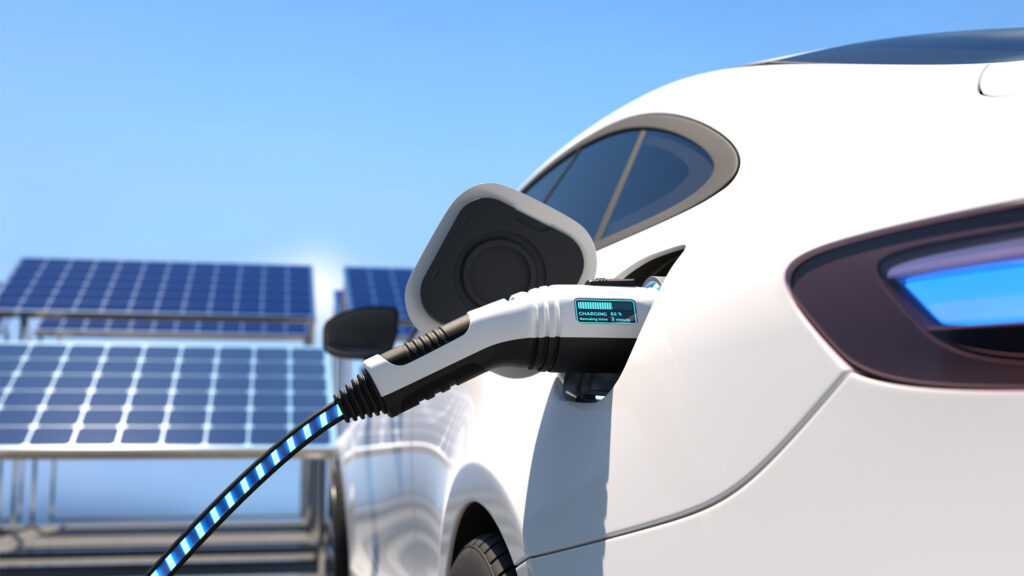By John Burr, Jacksonville Climate Coalition
A wide ranging hurry-up effort is underway in Northeast Florida to capture millions of dollars in federal funding to fight climate change.
Up for grabs is funding from the U.S. Environmental Protection Agency to reduce air pollution from fossil fuels, the type of pollution that is the primary driver of climate change around the world.
The aim is to bring on an increasing amount of solar power, electric vehicles, transportation shifts and energy conservation programs across the five counties of Northeast Florida by 2030 and beyond, and to do so in a manner that ensures that low-income people benefit equitably.

Local governments across the country are in a robust competition for these federal funds, and it’s acknowledged that states that are far ahead of Florida in terms of promoting green energy, such as California and Massachusetts, have a leg up for funding.
Even so, the potential economic and health benefits of building a clean energy economy for Northeast Florida are monumental, and certainly worth the intensive effort underway in Jacksonville City Hall and across the region. The local effort includes the counties of Baker, Clay, Duval, Nassau, St. Johns and a portion of Flagler.
Time is short. The first step, a detailed grant proposal, needs to be submitted to Washington by March 1. The work continues after that to further develop a detailed climate action plan for the region, due by summer 2025.
This plan will detail how and by how much climate-altering pollutants can be reduced over the next 25 years, with a focus on promoting electric cars and trucks, the cooling and heating of homes and businesses with clean electricity, and industrial production using green energy.
In a plan this wide ranging, there are many elements, but the biggest bang for the buck is naturally being sought from the heaviest sources of climate-changing pollution. Those are cars and trucks, air conditioning and heating, electricity generation by utilities and industrial energy use.
Details of the region’s grant proposal can be found at https://bit.ly/cleanairnortheastflorida.
The proposal contains an updated accounting of how and where we generate greenhouse gas pollutants in Northeast Florida, and a first look at plans to reduce that pollution going forward.
What are fossil fuels and greenhouse gases?
Climate change is driven by an increase in greenhouse gases in the Earth’s atmosphere. The great majority of this increase is caused by the burning of fossil fuels, which are oil, gasoline, coal and natural gas – the same fuels that produce electricity, heat and cool our homes and businesses, and power our cars, trucks, ships, trains and planes.
Another way to look at it is we burn billions of tons of fuel to power modern society, and the gases, primarily carbon dioxide or CO2, that result from burning are spewed into the atmosphere.
So, it naturally follows that to reduce the threats posed by climate change, we must reduce our burning of fossil fuels.
What is a greenhouse gas inventory and why is it important?

Look inside the draft report from the city and you will find a greenhouse gas inventory, which is an accounting of the sources of climate-changing air pollution in Northeast Florida.
That’s important because when we know where these dangerous gases are coming from, we will know where to concentrate our efforts to replace this fossil fuel energy with clean energy sources.
Clean energy sources produce energy – primarily electricity – without air pollutants. These include solar and wind power, nuclear power, hydropower and other future clean energy sources in development, such as hydrogen and geothermal power.
John Burr is a journalist based in Jacksonville and the editor of the Jacksonville Climate Coalition newsletter, where this article was first published. To sign up for the newsletter, please visit https://bit.ly/jacksonvilleclimatecoalitionnewsletter.
If you are interested in submitting an opinion piece to The Invading Sea, email Editor Nathan Crabbe at ncrabbe@fau.edu. Sign up for The Invading Sea newsletter by visiting here.




Nuclear power should not be a choice. While the actual generation is cleaner than fossil fuels it is dirty in the extraction and processing of the ore . The construction of the facillaty takes along time as well as dirty. The disposal of waste products is expensive and dirty. INuclear fission power is dirty and should be eliminated completely.